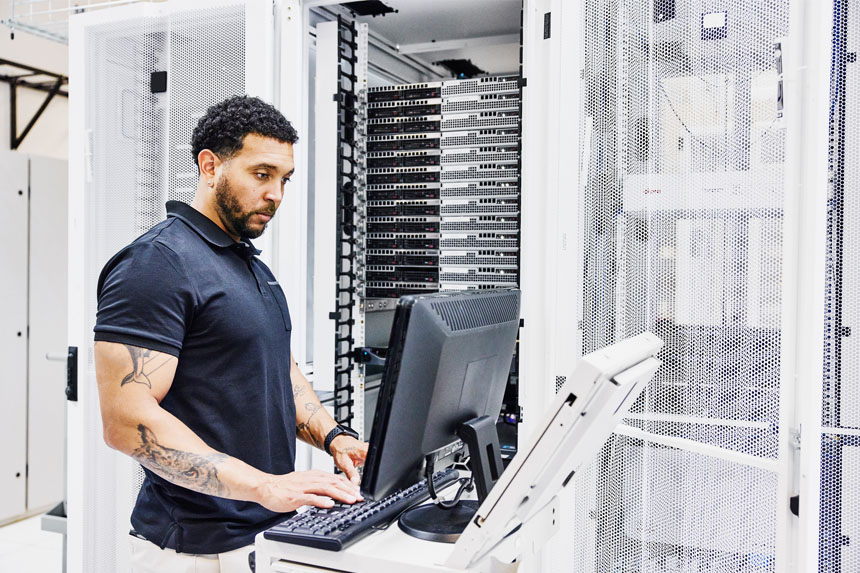An experienced medical affairs leader shared a depressing bit of information with us recently: since they had to start virtual-only outreach to experts his team, tasked with engaging experts in a new therapeutic area, has not be able to connect with new experts. Not a single one.
This is not an isolated case either, a number of questions submitted during our recent webinar “Competencies Needed to Build and Develop an Effective MSL Team” asked the same question: “How can we engage new experts with only virtual tools at our disposal?”
While we all hold out hope that in-person meetings will be possible again, there seems to be a growing consensus that virtual interaction and engagement are here to stay.
“Moving into the future, the typical MSL approach to field engagement will be different; there will be a blend of virtual and in-person interactions.“
Emmeline Igboekwe, Global Rare Disease MSL Lead-East, Chiesi
This turns the question ”How to best engage external experts virtually?” from a temporary nuisance into an ongoing challenge that medical affairs teams need to tackle.
Engaging new experts
A company entering a new therapeutic area, a new MSL joining the team, a new geography or simply expanding your expert panel are all reasons to connect with new experts. Even under the best of circumstances this is not an easy task but there were ways to meet experts that did not require the dreaded cold call or its contemporary cousin, the cold email. Conferences provided an opportunity to meet; dropping by for a quick introduction during a visit with colleagues at the same institution has also been know effective. Now neither of these established methods are available and we need to adjust and find new ways to get noticed during a time where everybody is trying to get attention with an especially clever email subject line.
Connecting with new experts virtually
The bad news is: there is no silver bullet. There is no one approach that will work all the time. But the basics of how humans interact has not changed: we trust certain people and by extension those they trust. Therefore, one approach is to rely on our established networks of experts for help.
This is nothing new, LinkedIn’s business is based on this idea: extend your network by identifying your connections and by being willing to connect two people you know but who don’t know each other.
The same principle applies for connecting with experts. An introduction or the permission to use one expert’s name to contact another is extremely powerful. Emails have a better chance to be read instead of ending up in the virtual trash bin if they come with an endorsement of a colleague.
That brings us to a practical problem (and, ultimately, a solution): while LinkedIn is certainly a great resource, it doesn’t capture the breadth and depth of scientific and medical connections you are looking for. To find relevant links between the experts you know and those you want to engage you need an expert database that shows you all professional connections and opens the door for a discussion with a trusted existing expert that includes an ask such as “I saw that you co-authored three papers with Professor Smith over the last two years. I would really like to connect with her and was wondering whether you would be willing to make an introduction?”
This doesn’t always work and if the answer is no, then you need to find another way. But if it works you cracked the virtual door open and need to prepare to deliver the first time you walk through – and every time after that.
Engaging experts virtually
To effectively engage an expert virtually you need to know everything (professional) there is to know about them and then align your communication – written or during a call – to truly speak to that particular expert at that particular point in time.
The first interaction with a new expert is likely via email. The reference hopefully got your email opened, now your content has to be highly relevant for each recipient as well as short and to the point. And “each expert” actually means “each expert individually”: no mass emails, no paste and copy, no one-set-of-overview-data-fits-all. Your communication needs to be customized and provide a compelling reason for the expert to take the critical next step: replying and agreeing to a call.
For that call or video conference, knowledge of the expert is just as important. Virtual interactions are fast: you might only get 15 minutes to have a purposeful and meaningful conversations that brings value to the expert and your company and keeps the door open for further engagement.
While this is especially important with new experts, keeping current on your established experts is just as critical and allows you to consistently deliver value in short calls and confirm for the expert that time with you was time well spent. It also increases your chances of obtaining insights that are germane for your organization and of getting the expert’s time and attention in the future.
This level of customized communication requires stellar preparation that involves you drawing up and then maintaining detailed profiles of each expert complete with information about all their professional activities (e.g. publications, clinical trials, tweets, grants, presentations – to name but a subset).
Monocl ExpertInsight – your short cut to profiling experts
That leaves you with two tasks: identifying collaborators of your established contacts and drawing up and maintaining detailed profiles for all of your experts. Without the right tool, specifically an expert database such as Monocl ExpertInsight, this is a daunting task that can keep a team of professionals busy – while still missing important information.
Especially professional connections are incredibly time-consuming to establish. Some will meet the eye like the frequent co-author, but if you are looking to break into a new therapeutic area the obvious connections might not be the best ones. It’s the relationship with experts who might work on the intersection of two therapeutic areas and aren’t frequent collaborators who could be of most relevance. These are very difficult to identify “by foot” but are only a mouse click away in a database.
The reasons to adopt an expert database as a one-stop-information-shop for creating and maintaining detailed expert profiles are manifold: it is faster, more efficient, and more comprehensive than piecing the information together from various sources. Additional features like data visualization and analysis tools can provide insights that you might otherwise miss.
Integrating expert information with your CRM
While having this information available in a dedicated database is very convenient, integrating it with your CRM facilitates and improves expert profiling even more. Being able to automatically add comprehensive expert profile information to your CRM allows you to:
- Get the latest updates on an expert’s profile quickly by looking at your CRM. This is a great way to make sure you didn’t miss anything and can help you get a quick update even a few minutes before that important call.
- Capture insights from the discussion in your CRM immediately after our call. Over time you will create an extremely valuable expert profile compiled of all publicly available data plus the unique, proprietary insights gained during your discussions.
- Collect all information in one place without the need to toggle back and forth between different systems.
- Make the information available to colleagues so everybody is working on the same knowledge basis.
Monocl Connect so far contained only a subset of the information available in Monocl ExpertInsight. With our latest update we have dramatically expanded the information accessible through your CRM. In addition to publications, clinical trials and grants it now also contains information about:
- Meeting attendance
- Industry payments
- Membership on corporate advisory, journal editorial, medical association and regulatory agency advisory boards
Virtual engagement of experts is difficult and it will take time for the virtual normal to truly become normal. At Monocl our goal is to provide you with tools that make this process efficient and fast and help you succeed identifying and engaging external experts.
Our specialists are happy to show you our expanded Monocl Connect solution. If you want to have a look, please click here.




